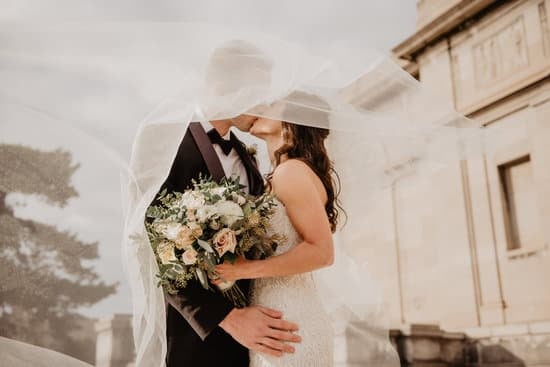Should you wear white to a wedding? This age-old question has sparked debates and discussions among wedding guests for centuries. In this article, we will explore the traditions and etiquette surrounding wedding attire, specifically focusing on the controversial topic of wearing white to a wedding. From the history behind the tradition to modern perspectives and alternative options, we will provide insightful information to help you make an informed decision on what to wear as a wedding guest.
When it comes to attending weddings, there are certain unspoken rules and traditions that govern what is considered appropriate attire. One of the most well-known traditions is the taboo of wearing white to a wedding, as it is widely believed to be disrespectful to the bride. However, in today’s society, opinions on this matter have evolved, leading to conflicting perspectives on whether wearing white to a wedding is acceptable or not.
To navigate through these intricacies of wedding attire etiquette, it is essential to understand the history behind the tradition of not wearing white to a wedding and how cultural and regional considerations can play a role in determining what is deemed appropriate. By doing so, you can confidently choose the perfect outfit while respecting the significance of this special occasion for the bride and groom.
The History Behind the Tradition of Not Wearing White to a Wedding
The tradition of not wearing white to a wedding has a long and storied history, with its roots dating back to ancient Rome. In Roman times, brides would typically wear white to symbolize their purity and chastity, while guests attending the wedding would avoid wearing white out of respect for the bride. This tradition has carried on through the centuries and is still widely observed in many cultures around the world today.
One of the main reasons behind this tradition is the belief that wearing white to a wedding can be seen as trying to upstage the bride. The bride is meant to be the focal point of the day, and by wearing a color traditionally associated with the bride, you may inadvertently draw attention away from her. Additionally, white is often seen as a symbol of purity and innocence, qualities that are traditionally associated with the bride on her wedding day.
In modern times, however, attitudes towards wearing white to a wedding have become more relaxed. Many brides are opting for non-traditional colored dresses, opening up the possibility for guests to wear white without overshadowing the bride. Ultimately, whether or not it is acceptable to wear white to a wedding depends on various factors including cultural norms, personal relationships with the couple getting married, and overall wedding attire etiquette.
The Modern Perspective
In modern times, the once hard and fast rule of not wearing white to a wedding has become more relaxed. Many people have begun to question whether it is still necessary to adhere to this tradition. The answer ultimately depends on the individual couple getting married, as well as their cultural and personal beliefs. While some may choose to stick to the traditional etiquette, others may opt for a more contemporary approach.
One key factor to consider when deciding whether or not to wear white to a wedding is the couple’s preference. Some couples may not mind if guests wear white, while others might find it inappropriate or even offensive. It is always best practice to reach out and ask the couple directly if you are unsure about what is acceptable attire for their special day.
Moreover, it is essential to take into account cultural and regional considerations when making your decision. In some cultures, wearing white to a wedding is seen as a gesture of respect and purity, while in others it can be seen as disrespectful or inconsiderate. So before selecting your outfit for a wedding, ensure that you are aware of any cultural or regional customs that might influence your choice.
| Wearing White | Cultural Considerations |
|---|---|
| Depends on Couple’s Preference | Important Factor in Decision Making |
| Considerate of Cultural & Regional Customs | Respectful Gesture |
How to Determine if Wearing White to a Wedding Is Appropriate
Consider the Bride’s Wishes
Before deciding whether to wear white to a wedding, it’s important to consider the bride’s wishes. If the bride has expressed that she would prefer guests not to wear white, it’s best to respect her request. Ultimately, a wedding is the bride and groom’s special day, and it’s essential to honor their preferences when it comes to attire.
Assess the Type of Wedding
The type of wedding can also play a role in determining if wearing white is appropriate. For formal or traditional weddings, opting for a non-white outfit is typically more suitable. However, for more casual or modern ceremonies, wearing white may be acceptable. It’s essential to consider the overall style and theme of the wedding when choosing attire.
Consider Your Relationship With the Couple
Another factor to consider when deciding whether to wear white to a wedding is your relationship with the couple. If you are close friends or family members of the bride and groom, it may be best to steer clear of wearing white out of respect for their wishes.
However, if you have a more distant relationship with the couple or are attending as an acquaintance, wearing white may be less of an issue. Ultimately, understanding your relationship with the couple can help determine if wearing white is appropriate.
Alternatives to Wearing White to a Wedding
There are several alternative clothing options for wedding guests who are considering what to wear to a wedding. While wearing white should typically be avoided to show respect for the bride, there are plenty of other elegant and appropriate choices that can make you look and feel great at the event.
Neutral Colors
Instead of wearing white, guests can opt for neutral colors such as beige, cream, or nude. These shades offer a similar soft and romantic look without overshadowing the bride. Neutral tones are versatile and can be easily paired with different accessories and shoes to create a stylish ensemble.
Soft Pastels
Soft pastel colors like blush pink, light lavender, or baby blue are perfect alternatives to white. These gentle hues exude elegance and femininity while maintaining a respectful distance from the traditional white bridal gown. Soft pastels also complement a variety of skin tones and provide a refreshing pop of color without stealing the spotlight from the bride.
Prints and Patterns
For those who want to add more visual interest to their wedding outfit, opting for clothing with prints or patterns is a great alternative to wearing white. Floral prints, polka dots, or subtle abstract patterns can add personality and charm to your attire while adhering to the etiquette of not wearing white.
When choosing an outfit for a wedding, it’s important to keep in mind that the focus should be on celebrating the union of the couple rather than drawing attention away from them. By selecting alternative colors or patterns instead of wearing white, guests can ensure that they adhere to traditional wedding etiquette while still expressing their individual style.
Tips for Choosing the Perfect Wedding Guest Outfit
When it comes to attending a wedding, choosing the perfect outfit is essential. The right attire will not only make you look great, but also show respect to the bride and groom. Here are some tips to help you choose the perfect wedding guest outfit:
1. Consider the Dress Code: Many weddings have a specific dress code that guests are expected to follow. Whether it’s black tie, formal, semi-formal, or casual, make sure to adhere to the dress code set by the couple.
2. Avoid Wearing White: As a general rule of thumb, guests should avoid wearing white to a wedding. This color is traditionally reserved for the bride and wearing it can be seen as disrespectful. Instead, opt for colors like pastels, bold prints, or jewel tones.
3. Choose Appropriate Attire: Depending on the time and location of the wedding, you may need to select different attire. For example, a beach wedding may call for lighter fabrics and more casual attire, while an evening wedding at a formal venue may require a more elegant outfit.
4. Take Cultural and Regional Considerations into Account: Different cultures and regions have their own customs and traditions when it comes to wedding attire. Be mindful of these factors and do some research if you’re unsure about what is considered appropriate.
By following these tips and considering the preferences of the couple getting married, you can ensure that your outfit is both stylish and respectful. Ultimately, choosing the perfect wedding guest outfit should be a thoughtful process that takes into account both tradition and personal style.
Cultural and Regional Considerations When It Comes to Wearing White to a Wedding
When it comes to the etiquette and traditions of wedding attire, cultural and regional considerations play a significant role in determining whether wearing white to a wedding is appropriate. Different cultures and regions have their own unique customs and beliefs surrounding wedding attire, which can greatly influence the decision on what to wear as a guest. It’s important to be mindful of these cultural and regional considerations when choosing an outfit for a wedding.
In some cultures, wearing white to a wedding as a guest is considered taboo, as it is believed to overshadow the bride who traditionally wears white on her special day. For example, in many Western countries, wearing white to a wedding is generally frowned upon out of respect for the bride.
On the other hand, there are cultures where wearing white to a wedding is perfectly acceptable or even customary. For instance, in some Asian cultures such as China and India, wearing white as a guest at a wedding symbolizes good luck and purity.
Furthermore, regional customs within countries can also influence whether wearing white to a wedding is appropriate. For example, in certain regions of Spain and Latin America, it may be more culturally acceptable for guests to wear white to weddings due to specific local traditions and beliefs. Therefore, it’s essential for guests to consider the cultural and regional aspects when deciding on their attire for a wedding.
- Research the cultural and regional customs of the couple getting married
- Consult with family or friends from the same culture or region for guidance
- Consider opting for traditional attire from the culture or region if unsure about what to wear
Ultimately, understanding cultural and regional considerations when it comes to wearing white to a wedding will help guests make an informed decision about their attire. By being aware of these factors, guests can show respect for the couple getting married and honor their customs and traditions while celebrating their special day.
Final Thoughts
In conclusion, the decision of whether or not to wear white to a wedding ultimately comes down to understanding and respecting the traditions and cultural norms surrounding this issue. While it may be tempting to ignore these guidelines in favor of personal style preferences, it is important to consider the feelings of the bride and groom, as well as their families.
The history behind the tradition of not wearing white to a wedding dates back centuries, and many still hold this custom in high regard.
When deciding what to wear to a wedding, it is crucial to take into account the specific circumstances of the event. Is it a formal or casual affair? What is the cultural and regional background of the couple getting married? These factors can greatly influence what is considered appropriate attire for their special day. In some cases, wearing white may be perfectly acceptable, while in others, it should be avoided at all costs.
Ultimately, attending a wedding is about celebrating love and happiness with those we care about. It’s important for guests to show respect for the couple’s wishes when it comes to dress code and traditions. By carefully considering these factors and making an informed decision on what to wear, guests can ensure that they contribute positively to the joyous occasion without causing any unintentional offense or misunderstandings.
Frequently Asked Questions
Is It Appropriate to Wear White to a Wedding as a Guest?
It is generally considered inappropriate to wear white to a wedding as a guest, as it could be seen as trying to outshine the bride. The focus should always be on the couple getting married.
Is It OK to Wear a White Floral Dress to a Wedding?
Wearing a white floral dress to a wedding may still be frowned upon, as the white color can still overshadow the bride. It’s best to choose another color for a wedding guest outfit to avoid any potential discomfort.
How to Wear White to a Wedding Without Offending the Bride?
If you want to wear white to a wedding without offending the bride, opt for an outfit in off-white or ivory instead of pure white. Additionally, consider adding colorful accessories or a statement piece to detract attention from the white attire and show respect for the bride’s special day.

I have been involved in marriages for over 20 years helping couples and singles understand more about them.





